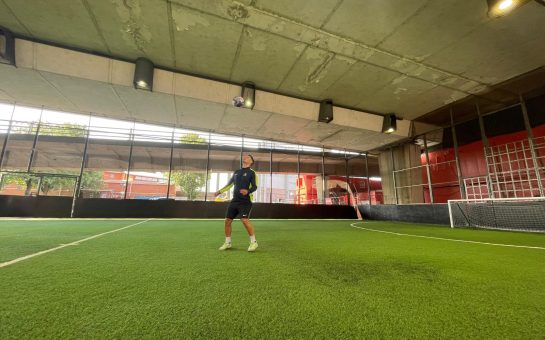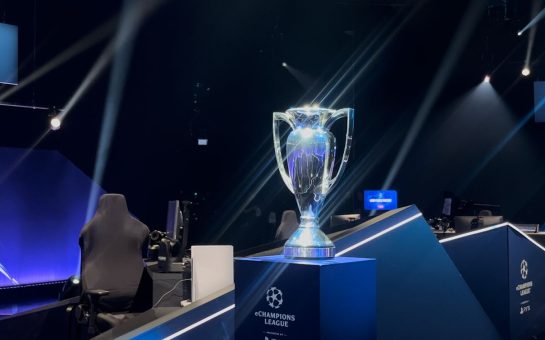The European Super League highlighted the discontent of football fans across the UK with the current game. But just a few weeks later, fans still remain near the bottom of football’s agenda.
When the ESL was announced, it backfired spectacularly.
Tired of not being consulted and taken for granted, fans of all six Premier League sides involved took to the streets to protest.
In the aftermath, a statement spread throughout the football world like wildfire; football is nothing without fans.
The issue is, football rulers do not share this sentiment.
At the highest level, they’ve forgotten about their domestic fans, partly because they’ve always believed that no matter what, these fans will always follow their club.
Even after the generic ‘we hear you and have listened carefully to the reaction of our fans’ apologies, contempt for fans, certainly at the highest level, is at an all-time high.
So angry was the reaction to the breakaway league, it prompted Culture Secretary Oliver Dowden to announce an independent fan-led review into football governance.
“I think we’ve reached this point due to years of sustained indifference to supporters from the football pyramid,” explained Tom Greatrex, Vice-chair of the Football Supporters Association.
“But if you keep doing that over and over again, people will eventually say they’ve had enough.
“That’s why we, the FSA, want these owners of clubs to recognise the bond between communities and clubs.
“At the heart, it is about ensuring that there are responsibilities that come with owning a football club and if you don’t want to deal with them then don’t buy one.”
Fans are now at the mercy of owners, many of whom have no ties to the area.
In the Premier League alone, there are just four UK-based owners with controlling shares.
And even then, just being UK-based does not guarantee good ownership, just ask Newcastle fans about their on-going battle with Mike Ashley for their soul.
In aftermath of the ESL debacle, one of the clubs to rail against their board was fans of Tottenham Hotspurs.
It’s certainly been a bumpy few weeks both on and off the pitch for Spurs chairman Daniel Levy.
Recently the club announced that it would have an elected fan representative join the non-executive board amid the fall-out from the ESL.
But the announcement was marred by the cost of a £60 ticket for their final home game against Aston Villa coupled with the decision to seat fans amongst the gods instead of pitch side.
“If you wanted a metaphor for the relationship between the club and the fans, just look at the stadium during the Aston Villa match,” explained THST Board Member Rachel Martin.
“While we’re now in discussion with the club again, we now have to make sure that the board seat has teeth.
“Obviously, we’re not going to influence everything in the running of the club but we’d at least like to be consulted on issues and feel like our voice is heard.
“This is a huge summer for Spurs and they need to think about what the supporters mean to them – there’s lots of supporters who haven’t renewed their season tickets yet and it’ll be interesting to see how many there are when we reach the deadline.”
But fan frustrations are not solely confined to ownership issues.
Both during the birth and death of the ESL, Gary Neville’s blistering attack upon the clubs, including his beloved Manchester United, was excellent.
It was forensic, impassioned and most importantly spoken from the heart. It gave fans a voice they so desperately needed and a platform to air it.
For 72 hours, Sky Sports became ‘The Anti-ESL show with Gary Neville’.
But it should not be forgotten that the very same broadcasters, in conjunction with the Premier League, tried to charge domestic fans £15 per game during a pandemic.
Broadcasters have long held power when it comes to deciding the fortunes of the match going football fan.
“With regard to moving fixtures for TV, we can’t have things like Newcastle playing away against Bournemouth at midday on a Saturday at 12:45,” added Greatrex.
“I would hope that after this sterile period broadcasters appreciate some of the challenges that moving fixtures at short notice has upon supporters.
“They need to take into account some of the practical implications as most supporters are reasonable enough to accept that there will be some different kick off times.”
Perhaps the best example of how football doesn’t value it’s fans can be seen amongst the lower leagues.
While the ESL protests prompted discussions about the treatment of fans, supporters of clubs further down the football pyramid are all too familiar with bad ownership.
Over the last decade, clubs like Blackpool, Bolton, and Wigan have all faced their own troubles with less than savoury owners.
None of these clubs received the intense scrutiny and spotlight that the ESL did but Sky Sports News did run a distasteful deadline day programme counting down to Bury’s liquidation.
Fans of these clubs have suffered at the hands of people who do not care about their club which represents a symbol of hope and unity within a community.
Supporters trusts of Blackpool and Bolton were left to fend for themselves when it came to protecting their club due to a lack of safeguarding from the EFL.
But after experiencing the dark era, both clubs now look to be heading in the right direction under new ownership.
“The feeling around the town is pretty buoyant,” said Andy Higgins, Chairman of the Blackpool Supporters Trust.
“Simon Sadler, the new owner grew up here and we’ve got a really constructive relationship with him and the new directors.
“They’re responsive to new things and they’re open too…it’s weird to feel what being part of a normal club feels like!”
Blackpool are an example of a club where everyone now seems to be on the right page, with the club recently gaining promotion after their League One play-off final win over Lincoln City.
Much like Blackpool, Bolton are now on the up too after years of decline.
And after their recent promotion back to League 1, Wanderers supporters trust member Paul Wood believes the influence of new ownership was vital to this success.
“The new owners have made a point to engage with the community and the trust on all sorts of levels – their saying is ‘One Club, One Community, One Town,” said Wood.
“They’ve gone out of their way to make it feel like we matter and that we’re heard.
“It’s made a huge difference.”
Ultimately, it all comes down to a dialogue.
Fans just want to feel like their voices matter and that they can be actively involved in discussions that impact upon what is ultimately a social institution.
Only time will tell whether their voices this time will finally be heard.



